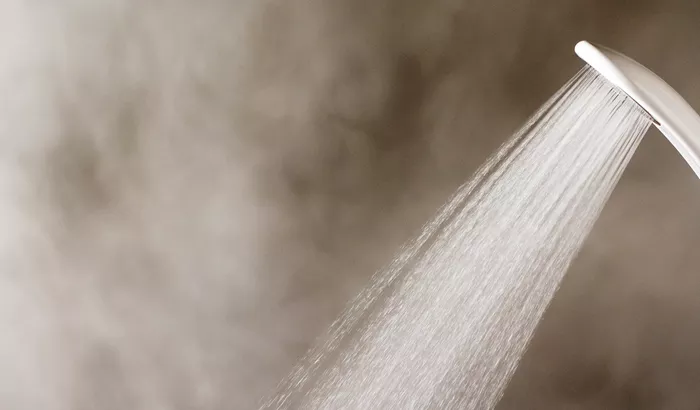Hot showers are a daily ritual for many people. They provide a sense of relaxation, help soothe muscles, and can be a great way to unwind after a long day. However, while hot showers may feel good, they might not be the best choice for your skin and hair. In this article, we’ll explore the effects of hot showers on your skin and hair, the science behind these effects, and provide tips on how to enjoy a warm shower without compromising your health and beauty.
Introduction to Hot Showers and Their Popularity
Hot showers are a beloved part of many people’s daily routines. The warmth of the water can help relax tense muscles, improve circulation, and even provide a mental escape from stress. However, while hot showers may feel luxurious, they can have unintended consequences for your skin and hair. Understanding how hot water interacts with your body’s natural processes is key to maintaining healthy skin and hair while still enjoying your shower time.
How Hot Showers Affect Your Skin
Stripping Natural Oils
Your skin produces natural oils, known as sebum, which help keep it hydrated and protected. Hot water can strip away these oils, leaving your skin dry and vulnerable. Over time, this can lead to irritation, flakiness, and even premature aging.
Disrupting the Skin Barrier
The skin barrier is a protective layer that keeps moisture in and harmful substances out. Hot water can weaken this barrier, making it easier for irritants to penetrate the skin and cause issues like redness, itching, and sensitivity.
Exacerbating Skin Conditions
If you have pre-existing skin conditions like eczema, psoriasis, or rosacea, hot showers can worsen symptoms. The heat can increase inflammation and dryness, leading to more frequent flare-ups.
How Hot Showers Affect Your Hair
Damaging Hair Cuticles
Hair cuticles are the outermost layer of your hair strands. Hot water can cause these cuticles to lift, making your hair more prone to damage, breakage, and split ends. This can leave your hair looking dull and frizzy.
Drying Out the Scalp
Just like your skin, your scalp produces natural oils that keep it healthy. Hot water can strip these oils, leading to a dry, itchy scalp and potentially causing dandruff.
Fading Hair Color
If you color your hair, hot showers can cause the color to fade more quickly. The heat opens up the hair cuticles, allowing the dye to wash out faster.
The Science Behind Hot Water and Skin/Hair Health
The Role of Sebum
Sebum is a natural oil produced by your sebaceous glands. It helps lubricate and protect your skin and hair. Hot water dissolves sebum more easily than cold or lukewarm water, which is why hot showers can leave your skin and hair feeling dry.
The Impact on Keratin
Keratin is a protein that makes up your hair, skin, and nails. Excessive heat can damage keratin, leading to weaker hair strands and a compromised skin barrier.
Temperature and Blood Flow
While hot water can increase blood flow to the skin’s surface, providing a temporary glow, prolonged exposure can lead to redness and irritation. This is especially true for people with sensitive skin.
Signs Your Skin and Hair Are Suffering from Hot Showers
Dry, Flaky Skin
If your skin feels tight, itchy, or flaky after a shower, it may be a sign that hot water is stripping away too much moisture.
Itchy Scalp and Dandruff
A dry, itchy scalp or an increase in dandruff can indicate that your scalp’s natural oils are being depleted by hot water.
Brittle, Frizzy Hair
If your hair feels rough, tangled, or prone to breakage, hot showers may be damaging the cuticles and drying out your strands.
Tips for Showering Without Damaging Your Skin and Hair
Optimal Water Temperature
The ideal shower temperature is lukewarm, around 98-102°F (37-39°C). This is warm enough to cleanse effectively without causing excessive dryness.
Shorter Shower Durations
Limit your showers to 10-15 minutes. Prolonged exposure to hot water increases the risk of stripping natural oils and damaging your skin and hair.
Using Gentle Cleansers
Choose sulfate-free, pH-balanced cleansers for your skin and hair. These are less likely to disrupt your skin barrier or scalp’s natural balance.
Moisturizing Immediately After
Apply moisturizer to your skin and a leave-in conditioner to your hair while they’re still damp. This helps lock in moisture and repair any damage caused by the shower.
Alternatives to Hot Showers
Lukewarm Showers
Switching to lukewarm showers can provide many of the same benefits as hot showers without the negative effects on your skin and hair.
Cold Showers and Their Benefits
Cold showers can help tighten cuticles, reduce inflammation, and improve circulation. They’re especially beneficial for people with oily skin or hair.
Incorporating Steam
If you enjoy the warmth of a hot shower, consider using a steam room or facial steamer instead. Steam can open pores and relax muscles without the drying effects of hot water.
Conclusion
While hot showers may feel comforting, they can have detrimental effects on your skin and hair over time. By understanding how hot water interacts with your body’s natural processes, you can make informed choices about your shower routine. Opting for lukewarm water, shortening your shower time, and using gentle products can help you maintain healthy skin and hair without sacrificing the relaxation you crave. Remember, balance is key—enjoy your showers, but always prioritize the health of your skin and hair.
By following these tips and making small adjustments to your routine, you can enjoy the benefits of a warm shower while keeping your skin and hair in optimal condition. Stay informed, stay hydrated, and most importantly, stay beautiful!
Related topic:
How To Tell If Your Skincare Routine Is Working?
How To Get Glass Skin For Oily Skin?
Should I Do Skincare Before Or After Shower?

